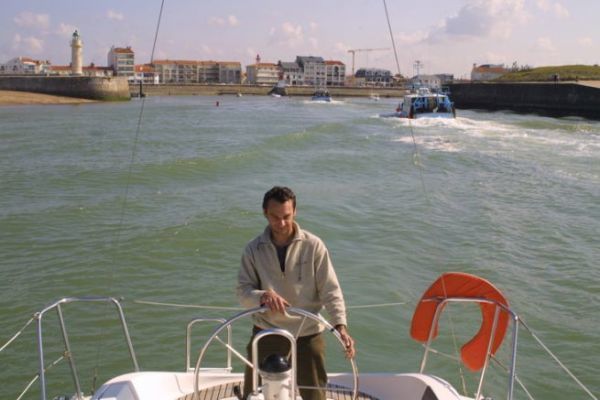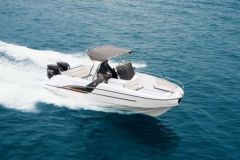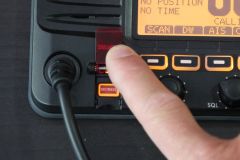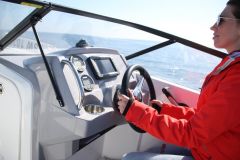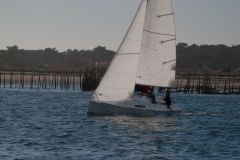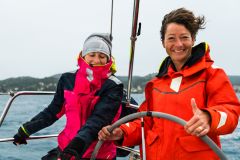Sailing isn't just about steering a boat or following a GPS. It also means knowing how to deal with the unexpected, calculating a route, interpreting a nautical chart, anticipating a tide, and above all, communicating with emergency services. The deep-sea license and the CRR (Certificat Restreint de Radiotéléphoniste) give you the keys to sailing with complete autonomy, and sometimes even avoiding the worst.
A typical case of an ill-anticipated tide in Saint-Gilles-Croix-de-Vie
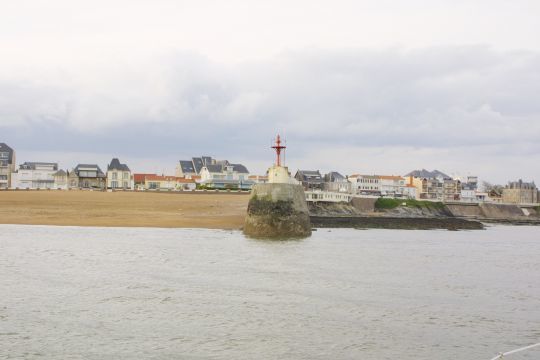
An experienced yachtsman arrives by sailboat from Les Sables-d'Olonne. He approaches Saint-Gilles at the end of the ebb tide. Using the knowledge he had acquired on his offshore license, he accurately calculates the remaining height of water in the harbor channel, adds a safety pilot foot, and decides to wait. He was well advised: another yachtsman tried to enter the harbor without this calculation... and followed.
Knowing the tides and the pilot's foot is not theoretical: it's essential, even in coastal navigation.
Electronics failure: know how to navigate "the old-fashioned way
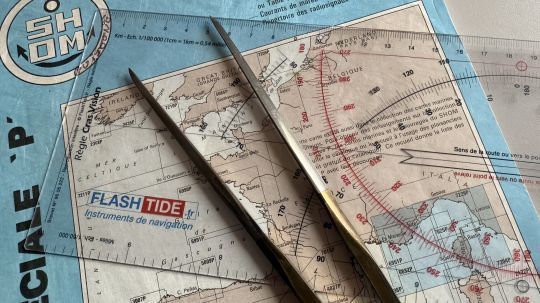
Another skipper off the coast of Les Glénan suddenly loses the use of his GPS. No need to panic: with the help of a compass, the Cras rule and his nautical chart, he took note of the visible landmarks and plotted his position. He reached Port-la-Forêt in complete safety.
Card work is not obsolete. It remains a reliable backup tool in the event of a breakdown.
Illness on board, rapid rescue thanks to VHF
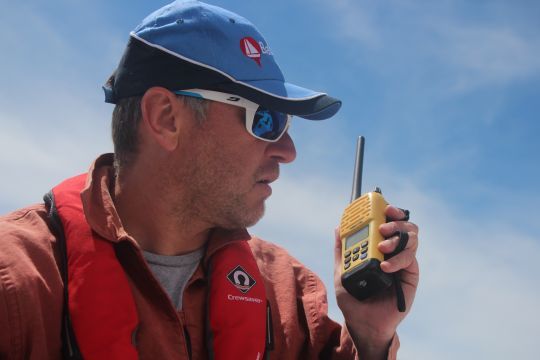
In the Mediterranean, between Hyères and Porquerolles, a crew member is feeling unwell. The skipper, who holds the CRR, calmly calls CROSS MED on channel 16. He clearly announces his position, the medical situation and the nature of the boat. Intervention is rapid and precise, avoiding a long and uncertain detour. Mastering the VHF isn't just a comfort: it's vital.
A trained sailor is a sailor who decides
These skills are not reserved for transatlantic or long-distance sailing. In the Mediterranean, Brittany or on the Atlantic coast, every cruise or day trip can raise questions of safety, navigation or communication.
A well-used offshore license and CRR can transform leisure boating into responsible navigation.
In a nutshell
Anticipating a tide, plotting a course, calling for help: these are the skills that make the difference between a successful outing... and an incident. These skills are taught in the offshore license and the CRR, which are much more than just exams: they are the basis for confident navigation, even close to the coast.
What's your next step in training? Offshore license? CRR? Both?

 /
/ 